Barbara Lee on Her Vote to Avert Forever Wars, and Why Trump Is Not a Peace Candidate
The California Democrat cast the only vote against a blank check for endless war on September 14, 2001.
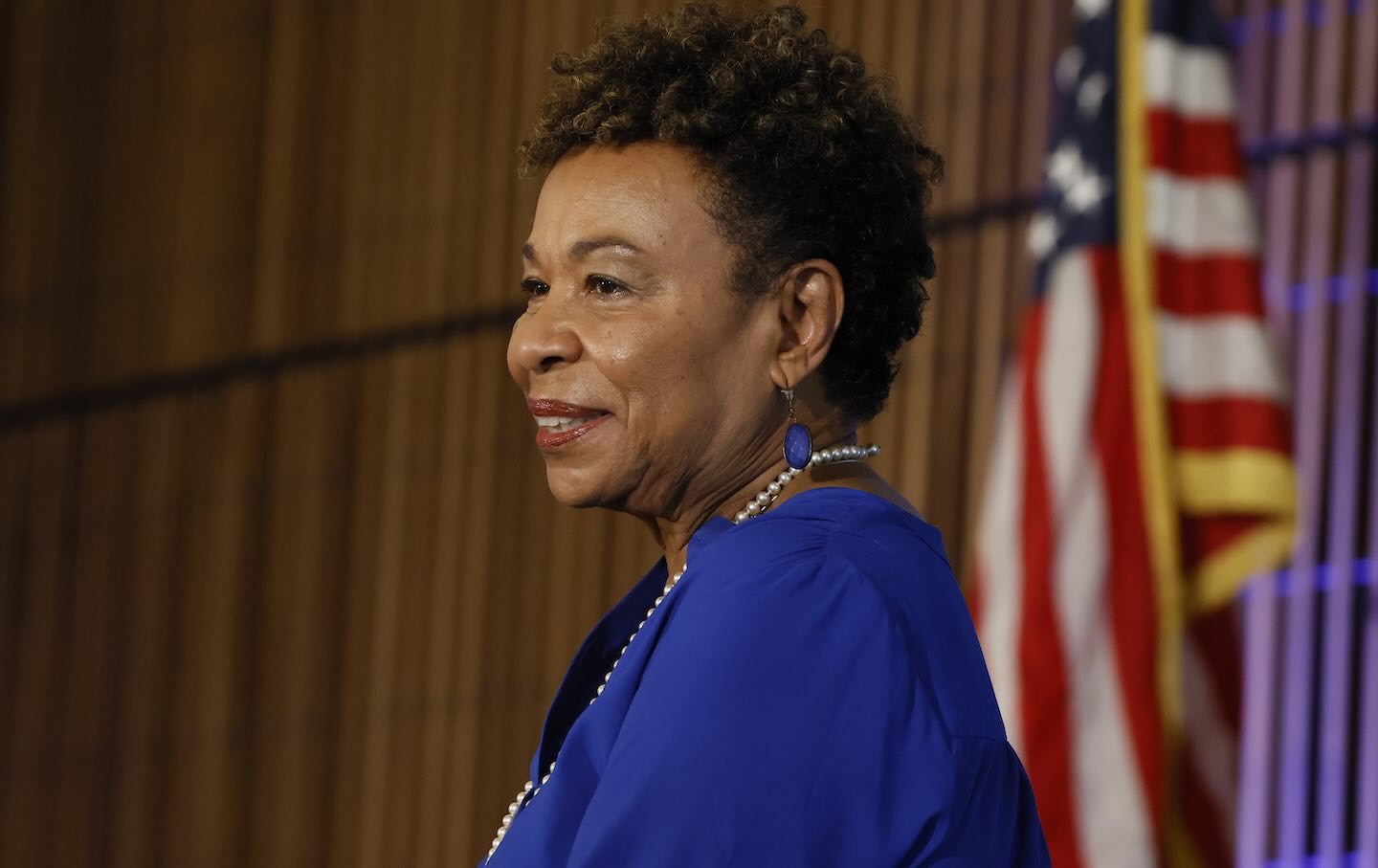
Representative Barbara Lee speaks at a town hall hosted by the advocacy group March for Our Lives at East LA College.
(Robert Gauthier / Los Angeles Times)
Twenty-three years ago, when US Representative Barbara Lee cast the sole congressional vote against giving President George W. Bush and Vice President Dick Cheney a blank check for war, the California Democrat was portrayed in the media as a political pariah. Her refusal to go along with the rush to invade and occupy other countries in the aftermath of the September 11 attacks would almost certainly doom her career, the pundits argued. Instead, after being steadily reelected to the House by voters in her San Francisco Bay Area district, Lee has served repeatedly as the representative of the United States to sessions of the General Assembly of the United Nations, has played increasingly prominent roles on House committees and caucuses dealing with questions about foreign policy and diplomacy, and has built unprecedented bipartisan coalitions to end the abuses of decades-old Authorizations for Use of Military Force (AUMFs) by presidents of both parties.
On the eve of the anniversary of her lonely September 14, 2001, vote, Lee and I spoke about how debates over war and peace have changed over the past quarter-century, about her latest effort to overturn outdated AUMFs, and about the 2024 election that she sees as a critical juncture in the struggle to avert global instability.
“I think the public was there way before members of Congress, in terms of understanding the broad nature of giving over Congress’s constitutional responsibility to the executive branch,” recalled the representative, whose 2001 vote inspired millions of Americans to embrace the message “Barbara Lee Speaks for Me.”
“Now, Democrats and Republicans in the House, together, understand it,” she added. Indeed, three years ago, when she sought to overturn the 2002 AUMF that was used as an excuse to launch the invasion of Iraq, dozens of conservative Republican House members joined the Democrat in supporting the move. “There were 49 Republicans who voted for that, and most Democrats did,” she said. In 2001, that initiative passed the House, which was then controlled by the Democrats, only to fail to get a vote in the Senate. Last year, the Senate approved a similar move, only to have it stall in the now GOP-led House.
The fight for a rational foreign policy can be frustrating. But Lee is undaunted. She’s still working to get Congress to overturn dated AUMFs in the final months of her tenure in the Congress—which she will leave in January after having lost a California Senate bid earlier this year.
Particularly on the 2002 measure, she has a growing number of powerful allies. “We have now the chairs or ranking members of the key committees—Foreign Affairs and Armed Services— looking at how to do this,” Lee explained. “So it’s just come full circle.”
The challenge this fall is a demand from some key players in the Republican-controlled House that any repealed AUMF be replaced with a new one. “We still have some who want to have a replacement before we repeal, or included in the repeal, which doesn’t make sense,” said Lee. “You are supposed to authorize the use of force or not based on the circumstances. We can’t go for a repeal and replace at the same time. So that’s a sticking point.”
Lee is working urgently in the last months of her congressional career, knowing that, if congressional action can be completed, President Biden is likely to sign the measure. “We got this in the Democratic platform a couple of years ago—the repeal of [the 2002 AUMF]—and President Biden said he would sign it. And, when we got it off the floor several years ago, he issued a SAP, a Statement of Administration Policy, saying that he wanted it on his desk so he could sign it.”
Biden’s presidency will end on January 20, 2025, and that raises the question of whether a new president would approve the measure.
Lee says she is confident that the Democratic nominee to replace Biden, Vice President Kamala Harris, would maintain the outgoing president’s stance. “We do know that she supports the Biden administration’s strategy on repealing the 2002 [AUMF],” Lee said of Harris. “That was the Democratic Party position, and the Statement of Administration Policy came from the Biden-Harris administration. So this election is extremely important.”
What about Donald Trump? The former president and his supporters claim that wars and global turbulence would be less likely under his leadership.
“He’s a liar,” Lee said of Trump. “C’mon, you know he doesn’t tell the truth at all, and I don’t agree with [assertions that he is some kind of peace candidate]. Just look at his record: who he cozies up to in terms of dictators. He wants more investment in the military budget. What his strategy is, is to create a more dangerous world. You can’t believe anything he says.”
Lee—who has served with Presidents Clinton, Bush, Obama, Trump and Biden—says that Trump’s record makes it clear to her that he “doesn’t care about peace.” She argues that electing Trump to a new term would “make it a more unstable and dangerous world.”
“Here he would have the nuclear codes, and that’s very scary. He is so erratic and unhinged. I really shudder to think of him having those powers, the powers of the presidency once again.”
Harris, whom Lee has known for decades, is a dramatically more reasonable prospect, argues the California representative. “She’s not going to use the military option as the first option,” said Lee. “She really believes in development, and global peace and security [initiatives].”
Popular
“swipe left below to view more authors”Swipe →“Of course, she’s going to be strong, and she is strong on national defense and defense of the country,” said Lee, who noted that Harris is more than sufficiently experienced to handle all the responsibilities associated with serving as the country’s commander in chief. “But she’s not going to be a warmonger. She’s going to look for peaceful solutions to the very difficult problems and tensions in the world.”
That does not mean that Lee has always been on the same page with the Biden-Harris administration, or that she would agree with a President Harris on every issue.
Lee supports deep cuts in Pentagon spending in order to free up money for domestic needs. With US Representative Mark Pocan (D-WI), the Californian organized and currently cochairs the Defense Spending Reduction Caucus. The pair has introduced the People Over Pentagon Act to cut $100 billion from the military budget and reallocate the funds to the address human needs at home. In the current Congress, the bill has 24 cosponsors, including Congressional Progressive Caucus chair Pramila Jayapal.
Lee is also one of the House’s most outspoken advocates for an immediate and permanent ceasefire in Gaza, where more than 40,000 Palestinians have been killed in the Israeli assault following the October 7 Hamas attack on an Israeli music festival.
Advocates for peace in the Middle East have been highly critical of Biden and Harris for being too supportive of Israeli Prime Minister Benjamin Netanyahu and the assault on Gaza.
Lee says that Harris has in recent months sent encouraging signals on this issue—most notably in her acceptance speech at last month’s Democratic National Convention. “She has opened up some space,” Lee said of the vice president. “She did, very clearly, say she supports and wants a ceasefire. She understands the plight of the Palestinian people, and that they deserve respect. Of course, [Harris recognizes that] Israel’s security is extremely important.”
What Lee thinks is vital is that, as commander-in-chief, Harris would listen to diverse voices, including advocates for peace and justice.
For her part, Lee will keep speaking up in her last months in the House and going forward. She says she will continue to make the argument to fellow Democrats that the way to achieve genuine security for Israelis and Palestinians is to end the assault on Gaza.
“What I said early on was that the way that this war is being prosecuted has created a humanitarian catastrophe and has created more anger, has created more Hamas supporters, and is counterproductive to Israel’s security,” said Lee. “I care about peace in the Middle East, and I believe in justice and freedom and self-determination for the Palestinian people.”
Support independent journalism that exposes oligarchs and profiteers
Donald Trump’s cruel and chaotic second term is just getting started. In his first month back in office, Trump and his lackey Elon Musk (or is it the other way around?) have proven that nothing is safe from sacrifice at the altar of unchecked power and riches.
Only robust independent journalism can cut through the noise and offer clear-eyed reporting and analysis based on principle and conscience. That’s what The Nation has done for 160 years and that’s what we’re doing now.
Our independent journalism doesn’t allow injustice to go unnoticed or unchallenged—nor will we abandon hope for a better world. Our writers, editors, and fact-checkers are working relentlessly to keep you informed and empowered when so much of the media fails to do so out of credulity, fear, or fealty.
The Nation has seen unprecedented times before. We draw strength and guidance from our history of principled progressive journalism in times of crisis, and we are committed to continuing this legacy today.
We’re aiming to raise $25,000 during our Spring Fundraising Campaign to ensure that we have the resources to expose the oligarchs and profiteers attempting to loot our republic. Stand for bold independent journalism and donate to support The Nation today.
Onward,
Katrina vanden Heuvel
Editorial Director and Publisher, The Nation
More from The Nation
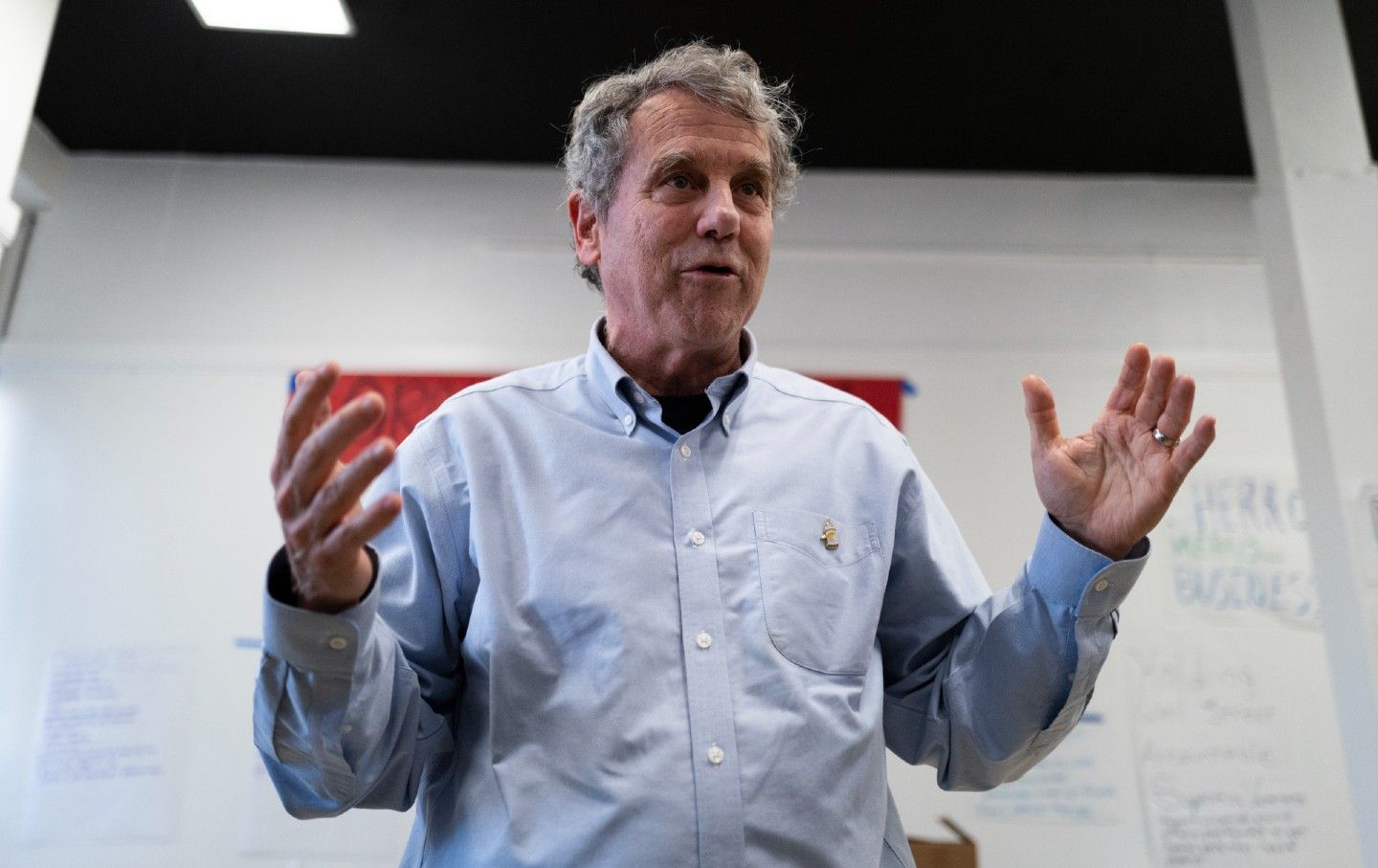
How the American Left Became Conservative How the American Left Became Conservative
Against the radical, if reactionary, experiment run from the White House, everyone from Democratic leaders in Congress to MSNBC hosts have turned to the defense of institutions.
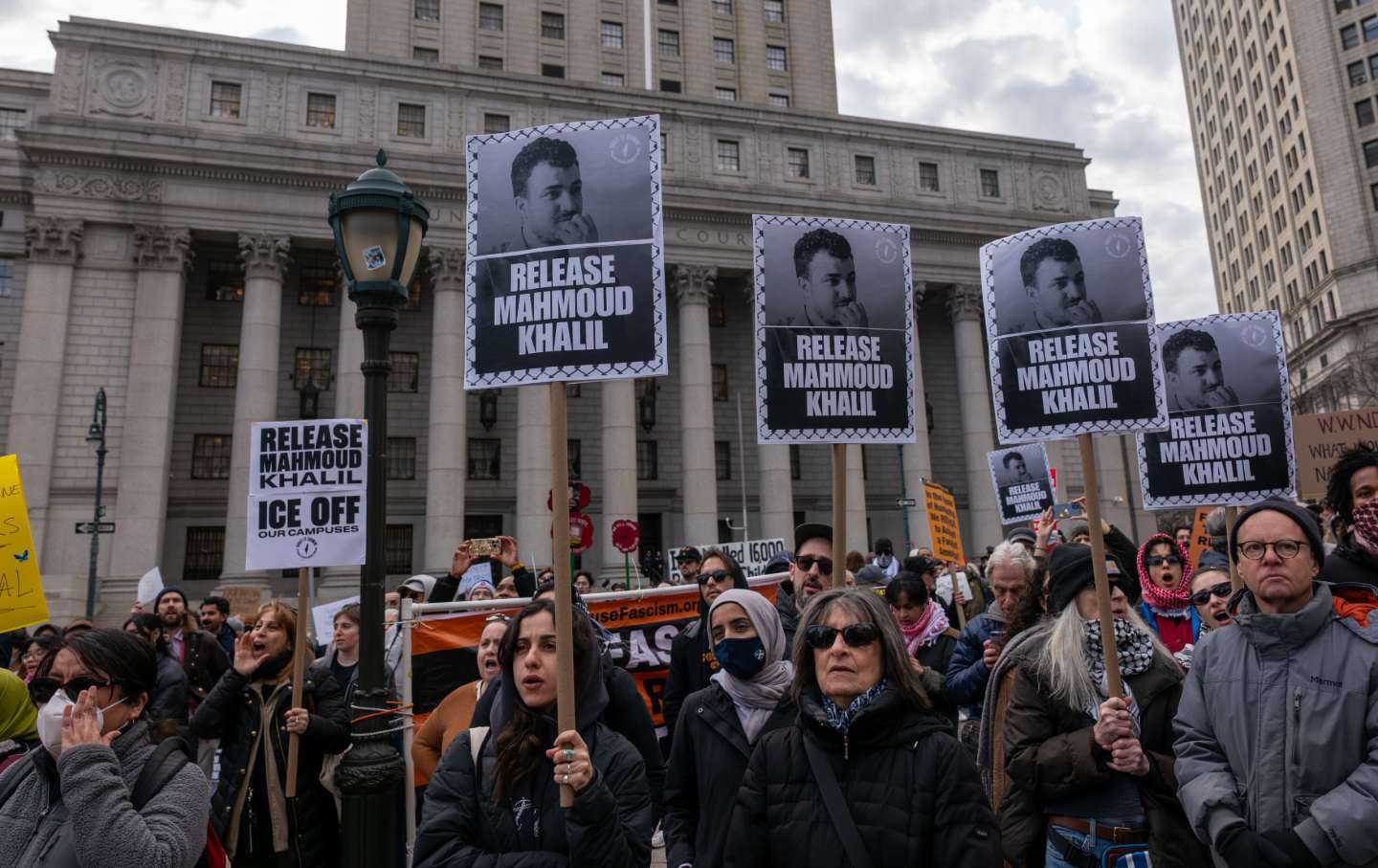
Mahmoud Khalil Is “Ready to Fight” His Unlawful Detention Mahmoud Khalil Is “Ready to Fight” His Unlawful Detention
The Nation spoke with Shezza Abboushi Dallal, a member of Khalil’s legal defense team, about the status of his case and the government’s attack on freedom of speech.

Trump Attacks Free Speech on Campus Trump Attacks Free Speech on Campus
Jailing protesters won't stop the protests.
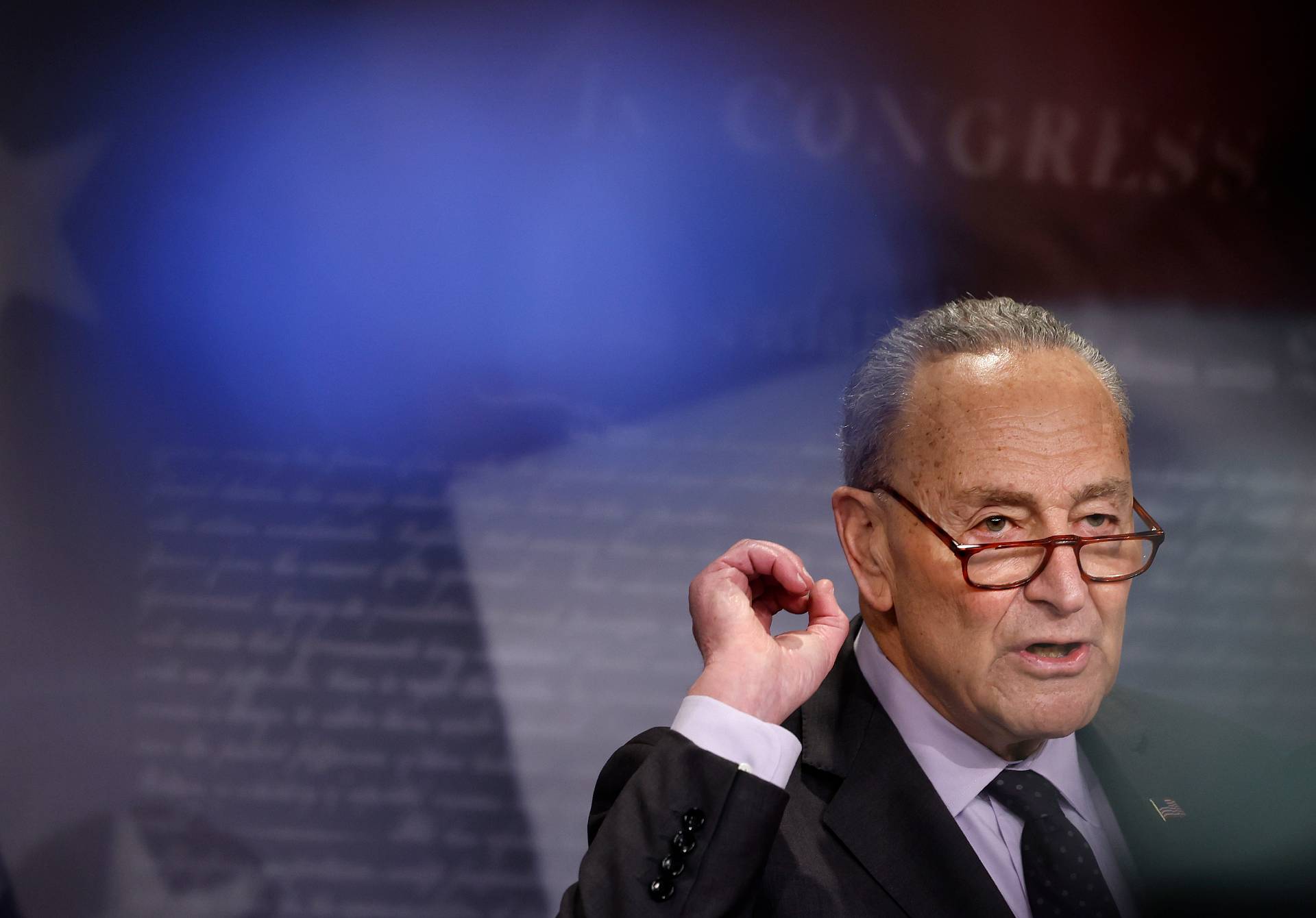
Chuck Schumer Should Resign to Spend More Time With His Imaginary Friends Chuck Schumer Should Resign to Spend More Time With His Imaginary Friends
The bad news is that the Democratic Senate leader isn’t up for reelection until 2028. The good news is that he can resign right now, and should do so—twice.
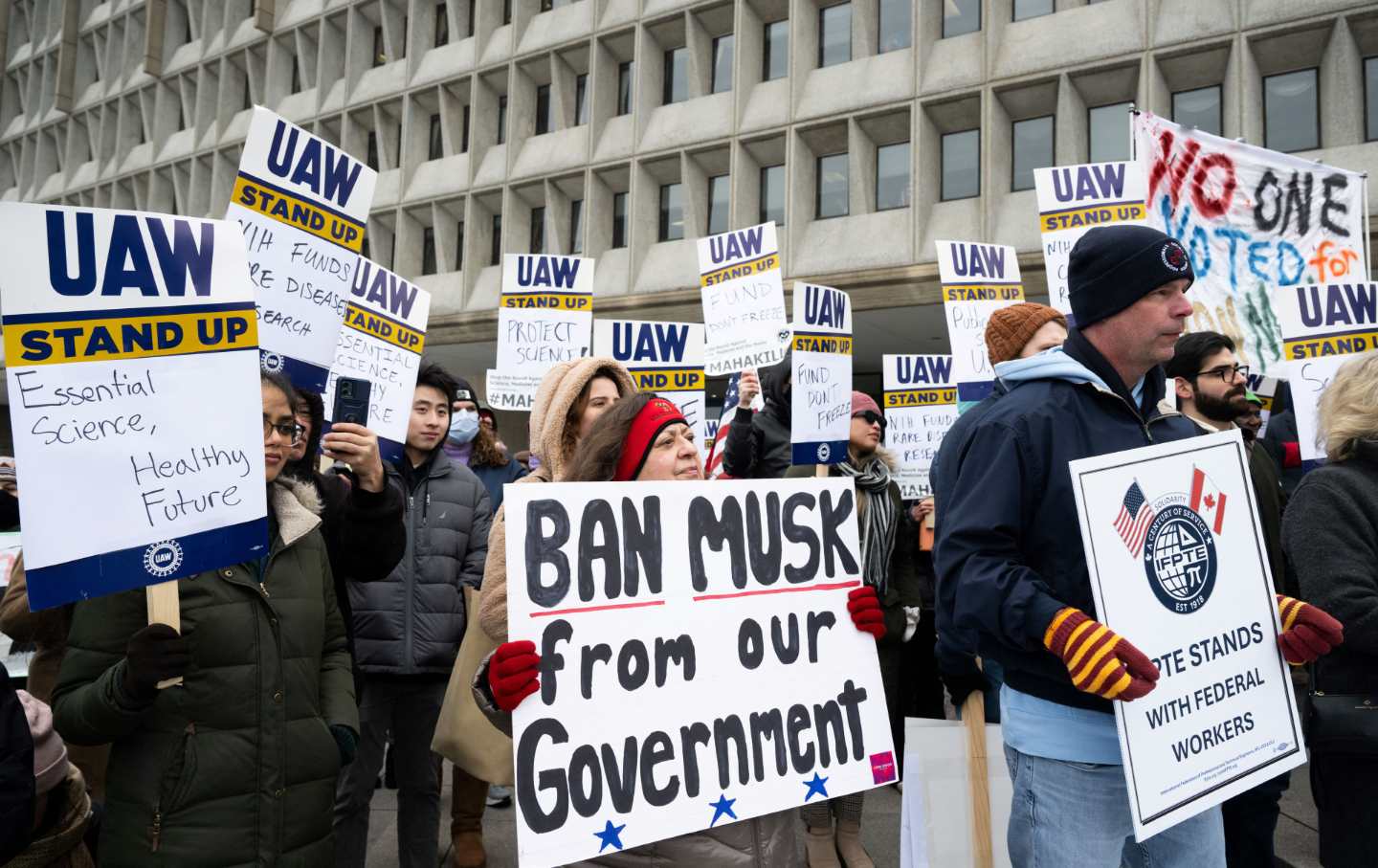
As Trump Closes in on Public Service Jobs, Young Workers Look Elsewhere As Trump Closes in on Public Service Jobs, Young Workers Look Elsewhere
The president’s executive orders have raised concerns among college students and recent graduates, prompting some to reevaluate their career plans.



